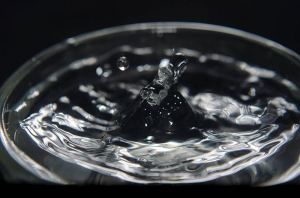 Nobody ever said there were too many ways to clean water. When it comes to the one resource that you need more than any other, it’s a good idea to learn as many methods of filtration as you can, because the situations you might find yourself in without clean water, are highly variable. The tools that are available in one situation may be lacking in another, so you should have a long list of water filtration methods in your head.
Nobody ever said there were too many ways to clean water. When it comes to the one resource that you need more than any other, it’s a good idea to learn as many methods of filtration as you can, because the situations you might find yourself in without clean water, are highly variable. The tools that are available in one situation may be lacking in another, so you should have a long list of water filtration methods in your head.
One of the easiest methods you may not have been aware of, involves the use of charcoal. It’s no secret that the carbon found in charcoal is an excellent tool for absorbing a wide range organisms and chemicals, and if you currently own a water filter, you’ve probably already used activated charcoal to clean your water.
However, activated charcoal isn’t completely necessary. It will certainly do a much better job than ordinary charcoal, so don’t think for a minute that you’re wasting your money on a high quality water filter. It’s just that, ordinary charcoal in its raw state is surprisingly effective for what it is, and may work in a pinch if you don’t have any better tools available.
For a quick and dirty guide on how to filter your water with ordinary charcoal, check out the video below. It’s probably one of the simplest methods I’ve ever seen.
I would only add one consideration to the video, which is that the water coming out of that charcoal filter is safer then it was before, but it’s not completely sterile. I suspect that its effectiveness is similar to what you would find in a biosand filter, which typically filters out about 90 percent of biological contaminants. This is still a huge improvement, and is an easy way to “prep” your water before using more thorough cleaning methods. It will definitely reduce the risk of catching a waterborne disease, but you should still take further measures if you can.
But even if you can’t, this method might keep you alive long enough to find help, or to find better tools to clean your water. So feel free to add this method to your water cleaning repertoire. You can never have too many.
